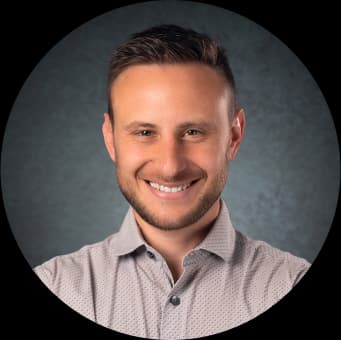Drug and Alcohol
Am I an Addict? Recognizing the Signs and Finding Help

Am I an Addict? Discover how to recognize the signs of addiction and explore the personalized support offered by The Edge Treatment Center for recovery.
Am I an addict? It’s a painful question—one that can stir fear, doubt, or even denial. But if you’re asking, something profound inside you is already aware that something isn’t right. Addiction doesn’t always look the same, but its impact is often life-altering, affecting your health, relationships, and peace of mind.
The good news? You don’t have to face it alone. At The Edge Treatment Center, we help individuals like you recognize the signs, understand what’s going on, and take the first step toward lasting recovery. Asking is the beginning. Healing is possible.
What Addiction Means

When wondering whether you are an addict, it helps first to understand what addiction truly is. According to the DSM-5 and the National Institute on Drug Abuse (NIDA), addiction—medically referred to as Substance Use Disorder (SUD)—is a chronic mental health condition. It involves a compulsive urge to use drugs or alcohol despite harmful consequences. This disorder impacts your ability to control use, leading to problems at home, work, school, and in relationships.
Addiction is measured by a range of symptoms, such as increased tolerance, withdrawal symptoms, cravings, and ongoing use even when it causes serious harm.
How Addiction Changes the Brain
Addiction isn’t just a behavior problem—it’s a brain disorder. Substances like alcohol, opioids, and stimulants hijack the brain’s reward system, flooding it with dopamine, the chemical linked to pleasure and motivation. Over time, your brain adjusts to these surges, making it increasingly difficult to experience pleasure without the substance.
This change in brain chemistry reinforces the compulsion to keep using, even when you want to stop. It’s why willpower alone often isn’t enough—your brain has been rewired.
Addiction Is Not a Moral Failing
It’s easy to feel shame or guilt when dealing with addiction, but it's vital to understand: addiction is not a moral failing. It’s a treatable medical condition. At The Edge Treatment Center, we believe in compassionate, science-based care. With the right treatment plan, support system, and therapeutic approach, recovery is possible. You are not broken—you’re struggling with a health issue that can be managed and overcome.
Key Warning Signs of Addiction
Recognizing the signs of addiction is a critical step toward answering the question of whether you are an addict. While addiction can look different from person to person, several key warning signs appear consistently across substance use and behavioral addictions. Here’s what to watch for:
Impaired Control
One of the most common signs of addiction is the inability to stop or cut back, even when you’ve tried. You may set limits for yourself—like drinking only on weekends or avoiding certain substances—but find that you quickly lose control. This loss of control often leads to using more than intended or continuing longer than planned.
Social and Occupational Impact
Addiction doesn’t just affect you—it affects everyone around you. Struggles at work or school, frequent absences, poor performance, and conflicts with coworkers or teachers may begin to surface. You might also start to isolate yourself, damage relationships, or lose interest in responsibilities and activities you once enjoyed.
Risky or Continued Use Despite Harm
If you continue using a substance despite knowing it’s causing harm—such as health problems, financial strain, or legal issues—that’s a major red flag. This includes engaging in risky behaviors like driving under the influence, unsafe sex, or mixing substances.
Cravings, Tolerance, and Withdrawal
Intense cravings that dominate your thoughts, increasing tolerance (needing more to get the same effect), and experiencing withdrawal symptoms when you stop are strong indicators of a developing or existing addiction. These symptoms signal that your body has become dependent on the substance.
Behavioral Addictions
Addiction isn’t limited to drugs or alcohol. Behavioral addictions—such as gambling, internet use, gaming, or shopping—can also hijack your brain’s reward system. Just like substance addiction, these behaviors may start as enjoyable but become compulsive and hard to control, interfering with your daily life.

We’re Here To Help You Find Your Way
Would you like more information about mental health or drug addiction? Reach out today.
Self-Assessment Approach
Trusted resources like AAC, DrugRehab, Healthy Life Recovery, and Freedom Recovery offer tools designed to help you evaluate your behaviors and identify possible signs of addiction. These quizzes typically ask about your substance use, emotional patterns, attempts to quit, and how your habits are affecting your life.
Be Honest with Yourself
Self-assessments are only helpful if you're honest in your answers. Denial is a standard part of addiction, so it’s vital to reflect truthfully—even if the results are uncomfortable. If you're unsure about your answers or feel overwhelmed, speak with someone you trust. Opening up to a friend, family member, or counselor can provide you with the needed clarity and emotional support.
Professional Evaluation Is Key
While self-tests are helpful starting points, they aren’t enough for a diagnosis. At The Edge Treatment Center, we provide thorough, confidential evaluations conducted by experienced professionals.
We’ll help you understand what’s really going on and what steps to take next. If you suspect addiction may be a problem, don’t wait—getting a professional assessment is one of the most important decisions you can make for your health and future.
Core Therapies at The Edge Treatment Center

At The Edge Treatment Center, we offer a range of evidence-based therapies to support your recovery journey. Each one plays a unique role in helping you heal from addiction and its underlying causes.
Individual Therapy
Individual therapy offers a private, one-on-one space with a licensed therapist where you can explore the emotional, psychological, and behavioral roots of your addiction. This setting enables deep personal insight and effective goal-setting. Whether you’re dealing with trauma, stress, self-esteem issues, or unresolved emotional pain, individual therapy helps you understand the "why" behind your substance use and supports long-term change.
Group Counseling
Group counseling connects you with others facing similar challenges. Led by a trained therapist, group sessions provide a supportive environment where you can share experiences, receive feedback, and learn from others. Group therapy promotes accountability, reduces isolation, and builds a sense of belonging—key components in sustainable recovery.
Family Therapy
Addiction impacts more than just the person using—it affects the entire family. Family therapy helps repair trust, rebuild communication, and educate loved ones about addiction and recovery. At The Edge, we involve families when appropriate to foster a stronger support system and help everyone move forward together.
Cognitive Behavioral Therapy (CBT)
Cognitive Behavioral Therapy (CBT) is one of the most effective treatments for addiction. It focuses on identifying and changing negative thought patterns and behaviors that contribute to substance use. CBT teaches you practical skills to manage cravings, cope with stress, and prevent relapse by replacing harmful thoughts with healthier, constructive ones.
Dialectical Behavior Therapy (DBT)
Dialectical Behavior Therapy (DBT) is beneficial if you struggle with intense emotions, self-harm, or co-occurring mental health conditions like borderline personality disorder or trauma.
DBT teaches skills in four key areas: mindfulness, emotional regulation, distress tolerance, and interpersonal effectiveness. These tools help you stay balanced, manage conflict, and reduce the impulsivity that often drives addiction.

We’ll Lead You to New Heights
Do you have more questions about mental health or drug addiction? Reach out.
Ready to Break Free From Addiction? We’re Here to Help

Recognizing the signs of addiction is a decisive first step toward change. If you're feeling overwhelmed, uncertain, or stuck, know that recovery is possible—and you don’t have to do it alone. At The Edge Treatment Center, we provide compassionate, personalized care tailored to your needs.
Our experienced team is here to support you with proven therapies and a path to lasting recovery. Your better life can start today. Reach out to us now for a confidential consultation—we’re ready when you are.
What Qualifies as Being an Addict?
Being an addict typically means meeting at least two of the DSM-5’s 11 criteria, such as loss of control, increased tolerance, cravings, or withdrawal. The more criteria you meet, the more severe your substance use disorder may be.
How Do I Know if I Have a Substance Use Disorder?
Ask yourself if your substance use is hurting your health, work, or relationships. If you’ve tried to stop and can’t, or feel cravings and guilt, these are signs you may have a substance use disorder that needs professional support.
Can Behavioral Issues Count as Addiction?
Yes, behavioral addictions like gambling or excessive tech use can activate the brain’s reward system similarly to substances. These behaviors can become compulsive, lead to emotional distress, and interfere with daily life, just like drug or alcohol addiction.
What Should I Do if I Think I’m Addicted?
Start by taking a trusted self-assessment to reflect on your behavior. Then, reach out to a professional. At The Edge Treatment Center, we offer confidential evaluations and personalized treatment plans to help you start your recovery journey with support.
Is Addiction a Mental Illness or a Choice?
Addiction is a chronic mental illness, not a moral failing. It alters brain chemistry and behavior, making it challenging to stop without help. Like other health conditions, addiction requires medical treatment, therapy, and ongoing support to manage effectively.

We’re Here To Help You Find Your Way
If you or a loved one is struggling with addiction, there is hope. Our team can guide you on your journey to recovery. Call us today.
Written by
The Edge Treatment Center
Reviewed by
 Jeremy Arzt
Jeremy ArztChief Clinical Officer
Drug and Alcohol
September 27, 2025
